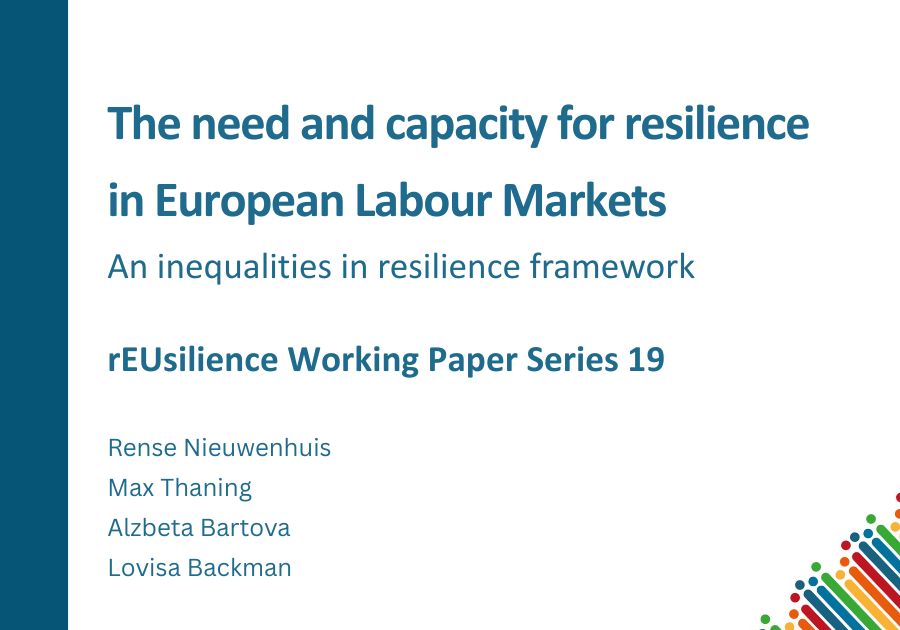We are pleased to share our new working paper, which develops an ‘inequalities in resilience’ framework to better understand how individuals respond to labour market risks in Europe, and how inequalities in resilience are shaped by structural factors such as education and family type. The paper, titled ‘The Need and Capacity for Resilience in European Labour Markets’, argues that while the concept of resilience is increasingly central to European social and economic policy, it is often applied without considering the unequal distribution of both exposure to risk and the resources needed to withstand it. In response, the authors propose a framework, building on the ‘cumulative inequality theory’ and the ‘prevalences and penalties framework’, that distinguishes between the need for resilience– measured by how often people face labour market risks such as unemployment, low-wage work, or low work intensity- and the capacity for resilience– measured by the ability to avoid poverty when such risks materialise. This approach enables a nuanced understanding of how social groups are differently positioned in terms of both risk and response, with important implications for policy design.
The working paper examines these dynamics using EU-SILC cross-sectional data from 30 European countries between 2010 and 2020, encompassing over 3 million individuals. By applying decomposition methods to this large dataset, the authors demonstrate that people with lower levels of education and single-parent or single-adult households consistently experience both a higher need for resilience and a lower capacity to achieve it. In contrast, tertiary-educated individuals and couples- both with and without children-typically experience cumulative advantage, being less exposed to risk and better able to avoid poverty if risks occur. The findings are robust across multiple combinations of labour market risks and poverty indicators, and consistent in both EU-wide and country-specific contexts, although the latter showing some more variation.
These findings highlight the importance of adopting a structural lens when discussing resilience in policymaking. If resilience is to serve as a meaningful policy goal, it must go beyond encouraging individual adaptability and tackle the structural roots of disadvantage by addressing the social conditions that leave some groups more vulnerable than others. The working paper suggests that effective resilience-focused policy should combine prevention, so reducing the likelihood of risk exposure, with resource-based interventions that build people’s capacity to respond when risks do occur. This requires moving past one-size-fits-all approaches and investing in policies tailored to those facing cumulative disadvantage.
The concept of cumulative inequality is central to the framework. Drawing on sociological theory, the paper shows how inequalities are often path-dependent (reinforcing over time), status dependent (linked to group membership), and compounded (arising across multiple domains). These insights suggest that improving resilience requires integrated policy efforts across employment, social protection, and family policy domains, including early-life interventions and more inclusive income support systems. Moreover, without targeted design, even well-intentioned resilience measures risk reinforcing existing inequalities, such as through the Matthew effects observed in public services where the benefits accrue most to those who need them least.
By developing this ‘inequalities in resilience framework’, the working paper offers both a conceptual and empirical tool for analysing how labour market changes impact different segments of the population. It is particularly relevant in a policy environment where resilience is increasingly invoked but rarely interrogated in terms of equity. The findings contribute to ongoing debates on how welfare states can support families under pressure, and how European societies can prepare for the transformations ahead without leaving vulnerable groups behind.
You can read the full paper here.
